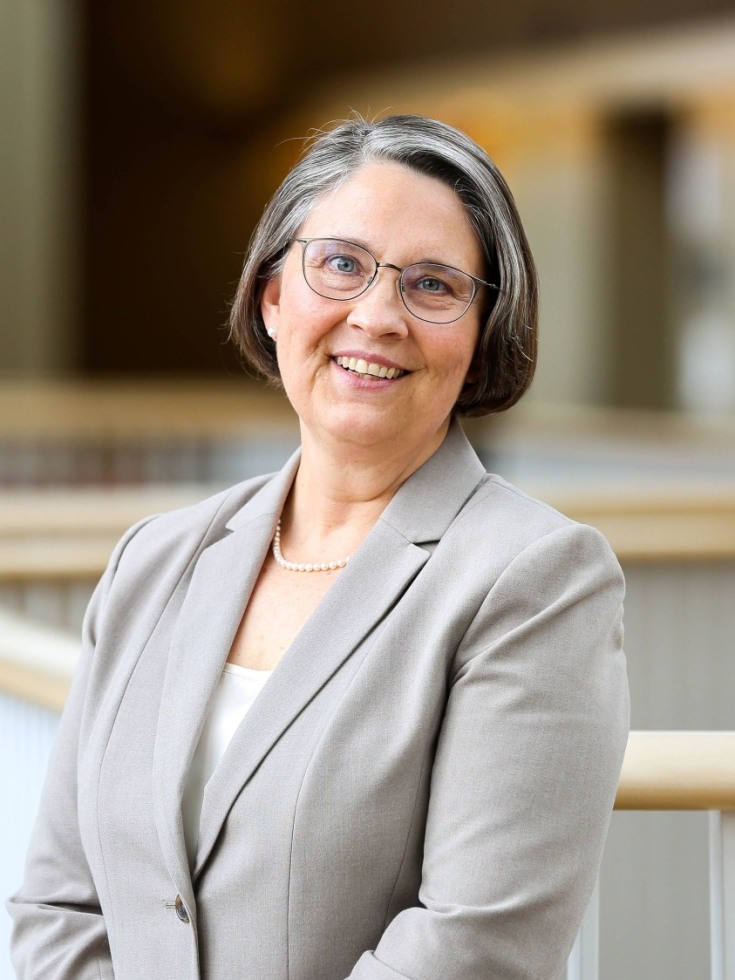After a stop at Brown as a visiting assistant professor of political science in the late 90s, Bassett's desire to merge teaching, research and advising brought her back to Harvard where she joined Social Studies, an interdisciplinary undergraduate concentration in the social sciences. While there, Bassett received the Harvard Phi Beta Kappa Award for Excellence in Teaching and the Star Family Prize for Excellence in Advising. In addition, she was nominated for the Levinson Teaching Prize and the John R. Marquand Award for Exceptional Advising and Counseling. She was also voted a "favorite professor" by the Harvard College classes of 2010, 2011, 2012, 2013 and 2018.
Bassett said that despite moving into academics and advising, she feels as if she has never left activism entirely behind. "For me, the activism of teaching and the activism of nurturing individuals as they prepare to go out into the world and try to heal it in some way is the most important part of the work I do," she said. "I believe that's how I can make the greatest impact."
Coming to Brown
"I loved my job," said Bassett, "and I never thought I would find anything I would want to do more, and I certainly never wanted to do anything that would take me away from working directly with undergraduates." But in 2018 Watson Institute Director Edward Steinfeld, who knew Bassett from his own graduate studies at Harvard, reached out to her to talk about her experiences running an interdisciplinary undergraduate program, as Watson was developing a new undergraduate concentration of its own.
"Four years later," she said, "I got an email in my inbox from Ed asking if I would consider applying to be IAPA's faculty director." While she was reluctant to leave Harvard after 25 years as a faculty member there, Bassett said that after looking into the IAPA program and Brown, "I thought, wow, this is something that I would really be interested in doing. It matches what I love doing the most. And Brown is an institution that is really focused on undergraduate education. So here I am."
Advising today
Bassett said that in her advising she tries to be mindful of the challenges students face today, and how different the world is than when she graduated college. "We live in such a troubled world, and I have enormous sympathy for this generation coming of age at this moment," she said. "When I graduated from college, the Berlin Wall came down and it seemed we were entering a period of possibility. I wasn't worried about finding a job or developing a career in the way that students have to today."
According to Bassett, there was a fundamental shift that accompanied the Great Recession. "Before 2008, my students on average understood that they were graduating from an elite college and that they were going to be fine," she said. "After 2008, that changed. Now my students are grappling with global warming, war, political polarization and challenges to our democracy that we could not have imagined a generation ago."
"It takes a lot of courage for college students to open their eyes and pay attention to what's happening in the world. And that is what IAPA students are doing," she said. More than that, "They're trying to understand this world, even when it's really painful to learn about. They are still asking why and how, and they are trying to make sense of it, and they're thinking about what their place is going to be in this world and how they can make it better."
"I so admire the students in the IAPA program," she said, "I admire the way they're thinking and their energy and their drive to understand the world and to contribute to it in a positive way."
A collegial, passionate and kind community
Bassett said it did not take her long to realize how special the sense of community and common purpose is at Brown and Watson. "The Open Curriculum and the spirit of Brown really does lead students to be more curious and creative," she said. "The Open Curriculum requires that students make their own meaning. They have to determine what's important to them and follow that, and it empowers them."
At the start of every class she teaches, Bassett asks her students to write a "getting to know me” essay. "This semester," she said, "I had a student who wrote, 'I chose Brown because I had heard that students were collegial, passionate and kind.' He added, 'I have found that to be true.'"
"I have also found that to be true," Bassett said.
